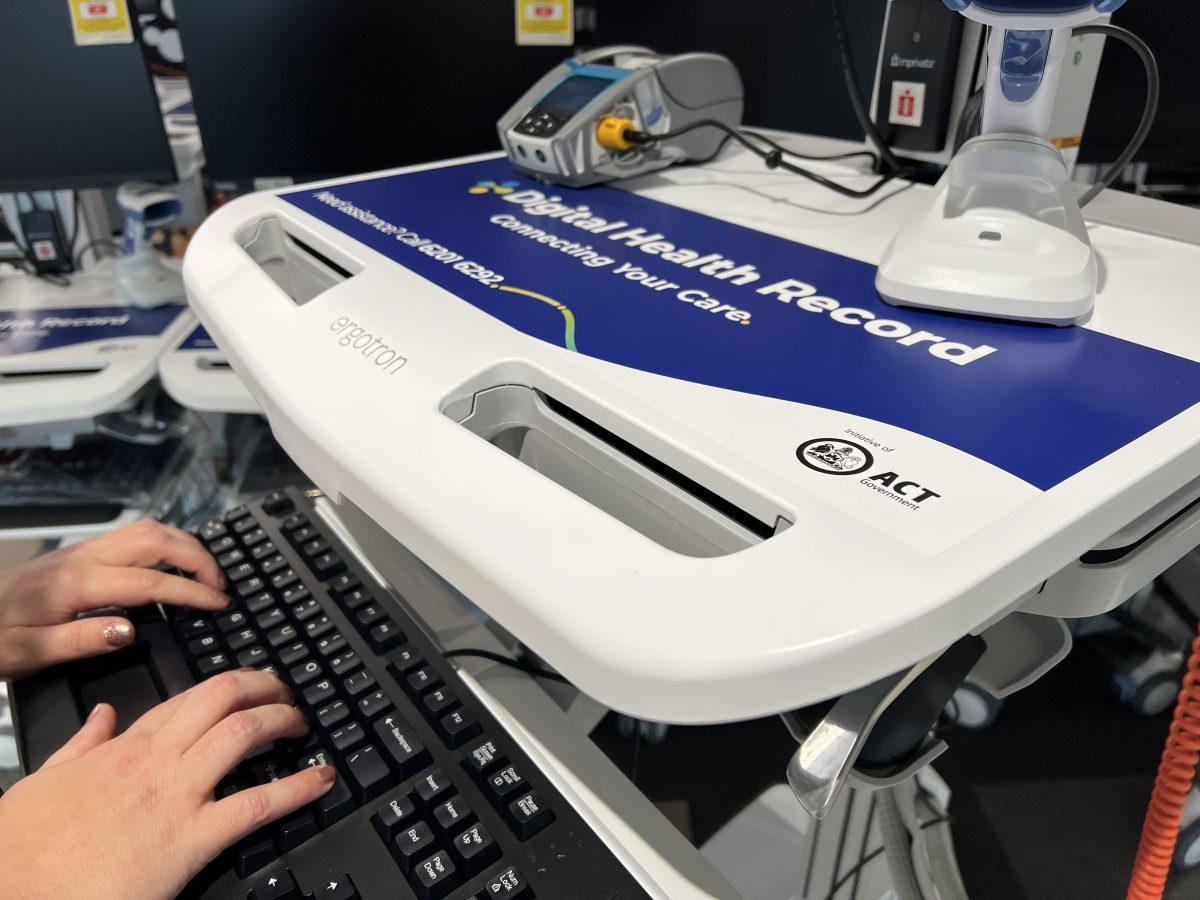
The Digital Health Record has been operating in the ACT for nine months. Photo: File.
The Canberra Liberals have called on the ACT Auditor General to find out what’s really behind performance issues with the Digital Health Record (DHR).
Shadow Health Minister Leanne Castley has labelled the $327 million project a “fiasco”, stating records acquired under Freedom of Information laws show the system is in shambles.
“Reliable health data for external reporting by Canberra Health Services, to support the community, decision makers and the Commonwealth, is still not available after nine months,” she said.
“The ACT Government allocated $2.2 billion for Canberra’s public health system [in the recent budget] but taxpayers don’t have data on our public hospital performance.
“This is not acceptable.”
Ms Castley pointed to monthly reports from the Digital Solutions Division (DSD), which outlined issues being experienced with the implementation of the system.
She said she was concerned that the latest report from February 2023 showed the DHR program was reporting an overall red status (not under control), with 35 open risks.
“This comes on top of a staff survey or ‘health check’ of DSD, which is implementing DHR, where all negative discussion appears to have been heavily redacted,” Ms Castley said.
Health Minister Rachel Stephen-Smith has refuted how Ms Castley has interpreted the data, stating the issues selected didn’t fully reflect the operation of the entire program.
“In the last reporting period, the overall DHR program was reporting red due to the individual Data and Business Intelligence project that sat within this program,” she said.
“The other two projects within this program, ‘Implementation’ and ‘Technical’, were not reporting a red status.”
Looking at the reason why the Data and Business Intelligence side of the project was reporting a red status, the document explained it was due to issues with the external reporting required for reports, such as national submissions.
Ms Stephen-Smith admitted there were still issues with preparing the data for external reporting, but assured the community the data teams were “working hard” to resolve the problems.
“Teams are undertaking quality assurance processes to deliver this external reporting as soon as they can, and it is important to get this right rather than rush something that could be incorrect,” Ms Stephen-Smith said.
Submission deadlines on the project to the National Health Funding Body have been revised, with the ACT Health Directorate now required to submit available data to the body on 30 September 2023, with a revised dataset to be provided by early November.
While the overall health status of the program, based on its performance indicators, was red, the schedule, budget, quality and scope health statuses were all green in the February report.
The 10 risks with a high rating related to issues with national reporting and submissions during the transition period and that data quality was poor, as well as slow decision making, no ready access to information through the Clinical Record, the DHR team’s inability to deliver tasks in alignment with the schedule, technical architecture issues and cyber attack concerns.
There were also six issues identified, with the top one relating to the formatting of results.
“Pathology result formatting and sending to external parties through the interface, and provider information not being correct, is impacting timely review of results for referring clinicians,” the report stated.
More than 263,000 results have been sent directly to a person’s myDHR account within one day of the test being analysed between 15 November 2022 and 23 January 2023.
Ms Stephen-Smith argued that, despite the technical issues and its bumpy launch, the DHR had already proven itself as beneficial to the public health system.
“Now when you go to an emergency department, walk-in centre or outpatient appointment, for example, the health professional is able to understand previous interactions with the ACT public health system,” she said.
“This is important for providing timely care and reducing the need for patients to tell their story multiple times.
“Reports have been received about how user-friendly the Digital Health Record is, with the transition from paper records to the Digital Health Record very much welcomed by many staff.”
Its existence allowed for a smoother transition of patient data during the acquisition of North Canberra Hospital, and has already picked up hundreds of medication errors.
Almost 15,450 history questionnaires have been filled in through myDHR, with more than 47,300 general questionnaires (which pre-populate information for patient charts) also completed.




















